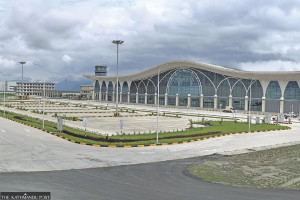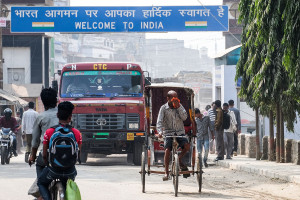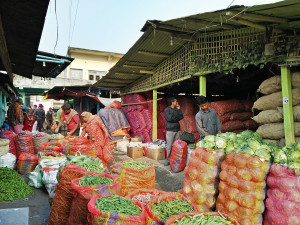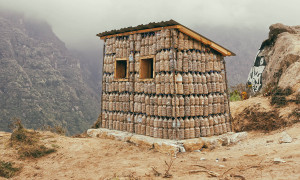Money
Prolonged strikes hit trade, business activities in West
The indefinite strike called by the United Democratic Madhesi Front protesting against the proposed federal set-up has severely affected trade and business activities in the Western region.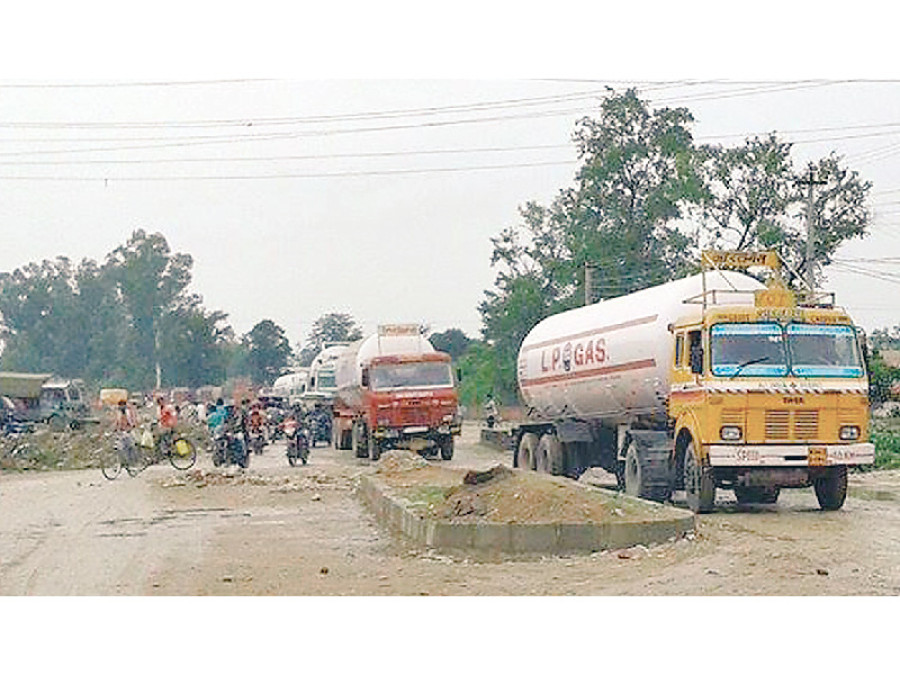
Janak Nepal
The indefinite strike called by the United Democratic Madhesi Front protesting against the proposed federal set-up has severely affected trade and business activities in the Western region.
Traders, transport entrepreneurs, farmers and local people are worried as the strikes do not seem to be ending anytime soon. The strikes have also affected supply of goods to most hilly districts.
Trade activities at the Nepalgunj custom point have come to a grinding halt for the last three weeks. Except the movement of a few vehicles ferrying petroleum products under police escorting, there are no other trade activities.
“The custom office used to collect Rs10 million daily, but there are no goods consignments being made after the strikes,” said Rajendra Hamal, chief of the custom office. Last fiscal year, the office had collected Rs3.80 billion in revenue, and has set a target of collecting Rs4.08 billion for this year, he said.
Industrialist Kanhaiya Lal Vaidya said it took five days for him to deliver a truck of goods to Dharan. “We have to bear millions of rippers of losses,” he said, adding the strikes have not only affected the private sector but also the government as it has been losing billions in revenue.
Vaidya is proprietor of Bijay Metal Industry — one of the leading exporters of metal products. He said the government failed to arrange security for traders, and as a result, it has been hurting the industrial growth. He said such prolonged strikes would lead to a shortage of essential goods and also paralyse trade and economy. “Daily wage earners are the most affected as they don’t have enough to survive during such difficult times.”
Dekhnath Gautam, general secretary of Nepal Transport Entrepreneurs Federation, said the transport sector was among the worst hit. “Around 80 percent of the transport entrepreneurs borrow loans from banks, and in such an environment, they will not be able to even repay the interest.” There are more than 13,000 private vehicles in the Western Region.
Krishna Prasad Shrestha, president of Nepalgunj Chamber of Commerce and Industry, said the strikes have paralysed the private sector’s growth. “The strike has affected the hilly districts the most as people who come here to purchase household commodities are forced to leave empty handed,” he said.
As strikes have continued for the last three weeks, the market has started to feel the shortage of daily essential commodities.
The transport strike has totally stopped supplies to Nepalgunj from Banke, Bardia and Salyan, sending the prices soaring. “The prices of vegetables have skyrocketed,” said Prem Prakash KC, a senior farmer in Salyan. “Besides, the farmers also have not been able to sell their produces. Farmers at Kapurkot in Salyan have to incur losses amounting to Rs25 million due to the strikes.”




 8.12°C Kathmandu
8.12°C Kathmandu






